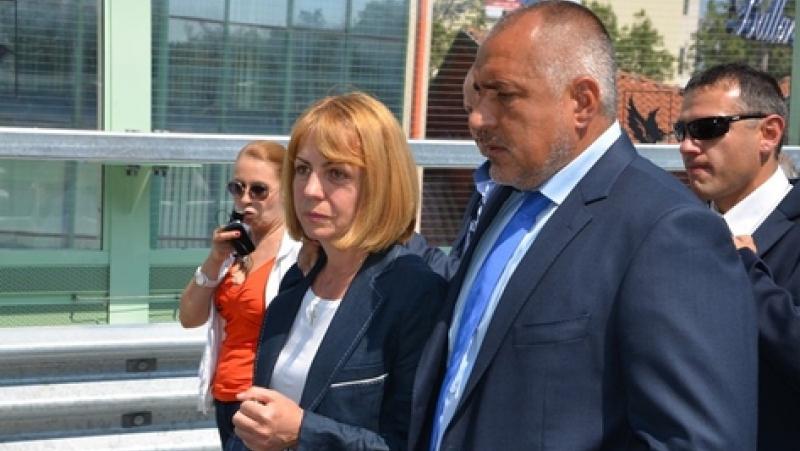/ world today news/ Now that I’m listening to you and looking at you with interest in the presidential elections, I’m thinking, why don’t we push ourselves and appoint a woman president for the presidential elections. We have enough figures to discuss.
This was stated by Prime Minister Boyko Borisov today in his greeting to the participants in the General Assembly of “Women-GERB” in NDK.
I thank those parties that participate in the government with us, because only what we have done so far was worth it, assured Borisov. He cited as an example the return of the funds from the European funds, the receipt of citizens’ money from the Corporate Commercial Bank.
I am also taking on the role of the other parties, it is difficult, but we have all realized that this is the best option, it is not ideal, but it is good for the country, the Prime Minister pointed out. Now we have distributed the management program to the other parties and it should be done by Wednesday, we have taken it as a commitment, he reminded.
#Boyko #bluffed #woman #president
**Beyond symbolic representation, what concrete policy changes or initiatives could a female president realistically implement to advance gender equality and women’s empowerment in Bulgaria?**
## Breaking Barriers: Women in Bulgarian Politics
**Welcome to World Today News!** Today we’re joined by two esteemed guests to discuss Prime Minister Boyko Borisov’s recent statement calling for a woman president in Bulgaria. Let’s welcome political scientist Dr. Maria Petrova and journalist Ms. Sofia Dimitrova.
**Section 1: The Call for a Female President**
**Interviewer:** Prime Minister Borisov’s statement, while seemingly progressive, has sparked a range of reactions. Dr. Petrova, what do you make of his call for a woman president, and what implications could this have for Bulgarian politics?
**Dr. Petrova:**
**(Encourage Dr. Petrova to elaborate on potential positive and negative implications, analyzing the political landscape)
**Interviewer:** Ms. Dimitrova, as a journalist closely following Bulgarian politics, what’s your take on the timing and context of this statement?
**Ms. Dimitrova:**
**(Prompt Ms. Dimitrova to discuss possible motivations behind the statement, examining the current political climate and public sentiment)**
**Section 2: Representation and Empowerment**
**Interviewer:**
Bulgaria has historically seen limited female representation in high political offices. Dr. Petrova, how crucial is it for a country like Bulgaria to have a woman at its helm, and what message does it send to the female population?
**Dr. Petrova:**
**(Encourage Dr. Petrova to discuss the importance of symbolic representation alongside tangible policy changes)**
**Interviewer:** Ms. Dimitrova, what are some of the challenges facing women aspiring to leading political roles in Bulgaria, and what steps could be taken to address these issues?
**Ms. Dimitrova:**
**(Prompt Ms. Dimitrova to discuss challenges like gender bias, lack of support systems, and propose concrete solutions for improvement)**
**Section 3: Coalition Politics and Governance**
**Interviewer**: Prime Minister Borisov highlighted the importance of coalition government in his speech. How do you think a potential female presidency would navigate the complexities of coalition politics in Bulgaria?
**Dr. Petrova:**
**(Encourage Dr. Petrova to analyze the potential impact on negotiation strategies, decision-making processes, and overall political stability within a coalition)**
**Interviewer**: Ms. Dimitrova, what are your observations on the current level of cooperation and trust amongst the parties in the coalition government? Do you see any potential roadblocks or disagreements arising from the idea of a female president?
**Ms. Dimitrova:**
**(Prompt Ms. Dimitrova to share her insights on inter-party dynamics, potential challenges specific to a female leader, and the possibility of consensus-building)**
**Closing**:
Thank you both for joining us today and sharing your insightful perspectives on this crucial topic. The call for a female president in Bulgaria undeniably raises important questions about representation, empowerment, and the future of Bulgarian politics. It certainly promises to be a topic of much discussion and debate in the months to come.


